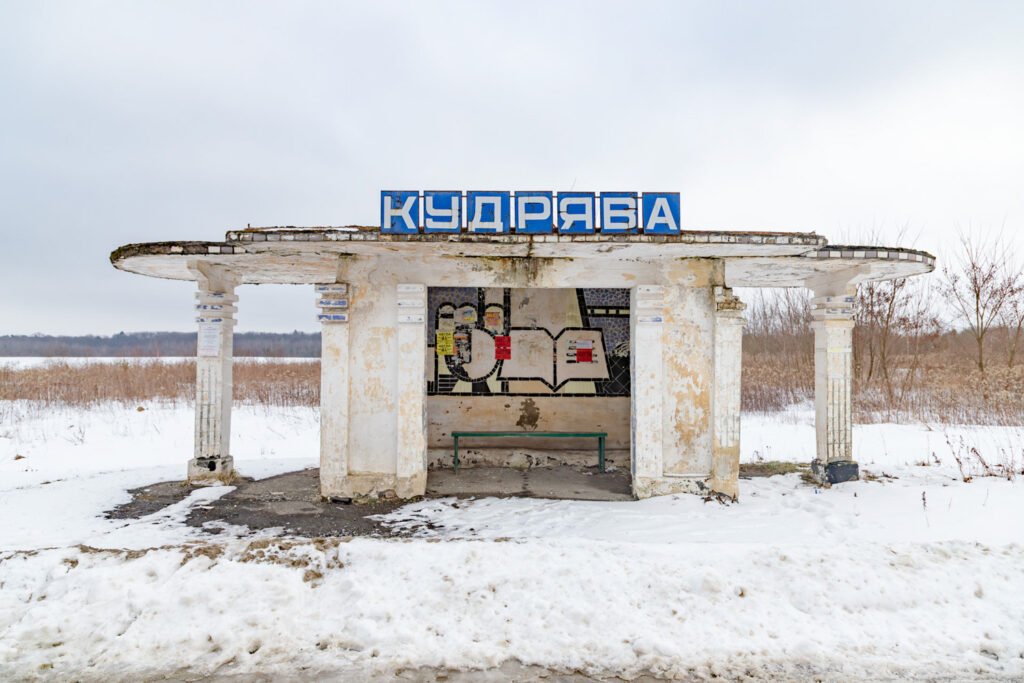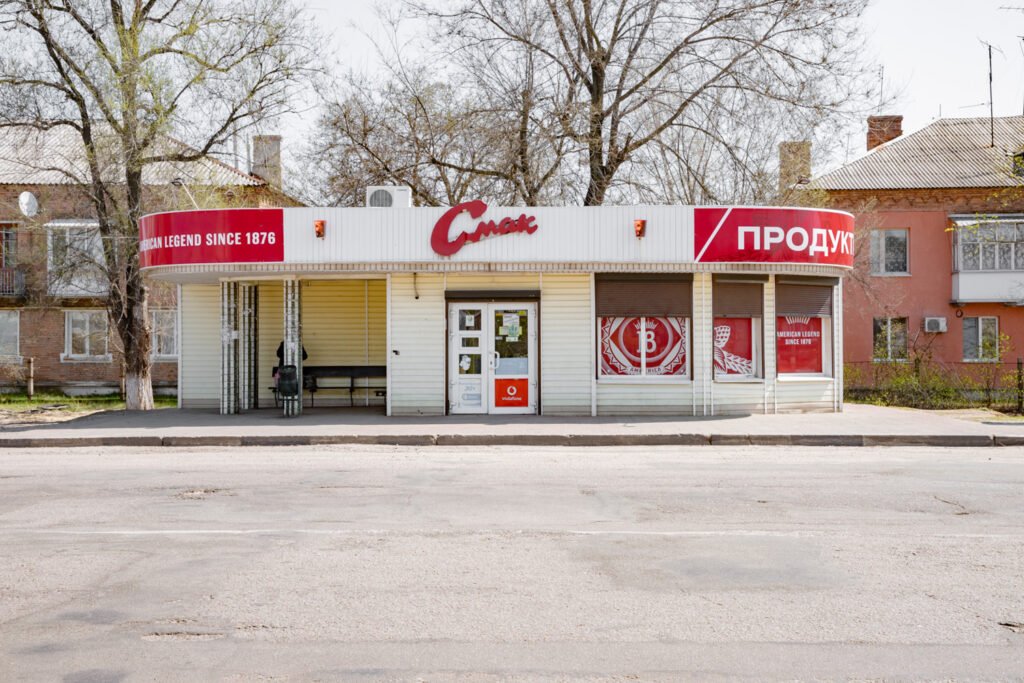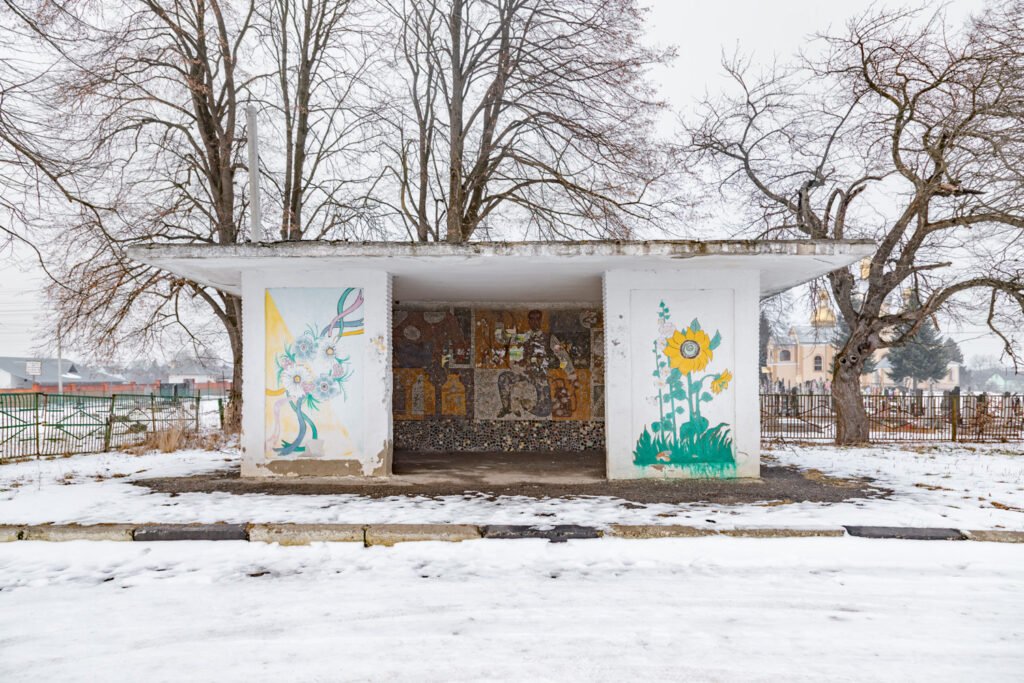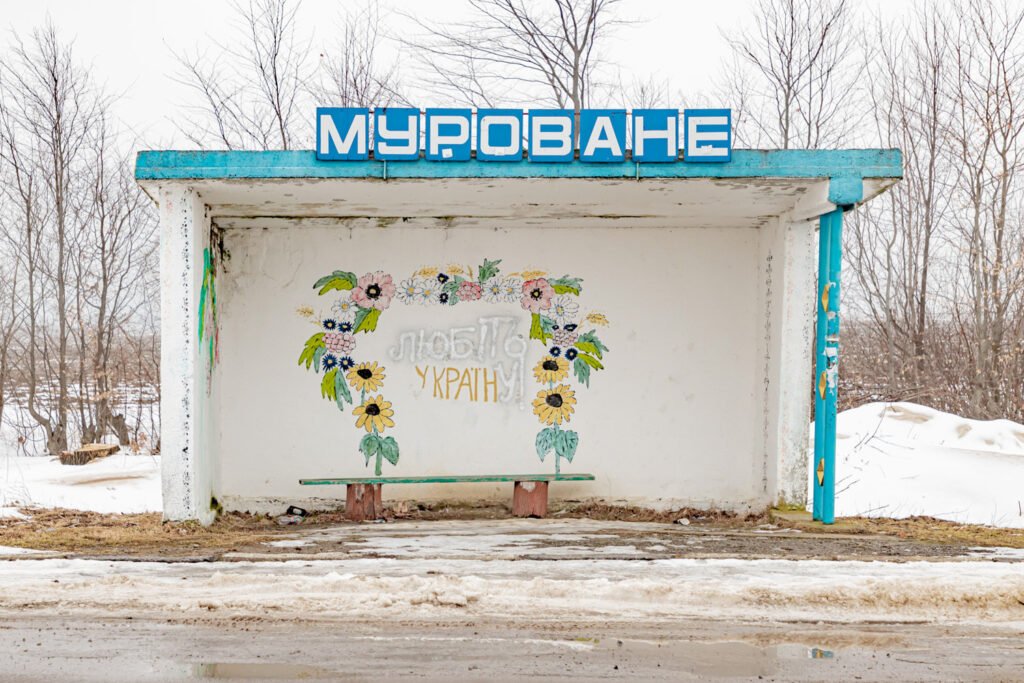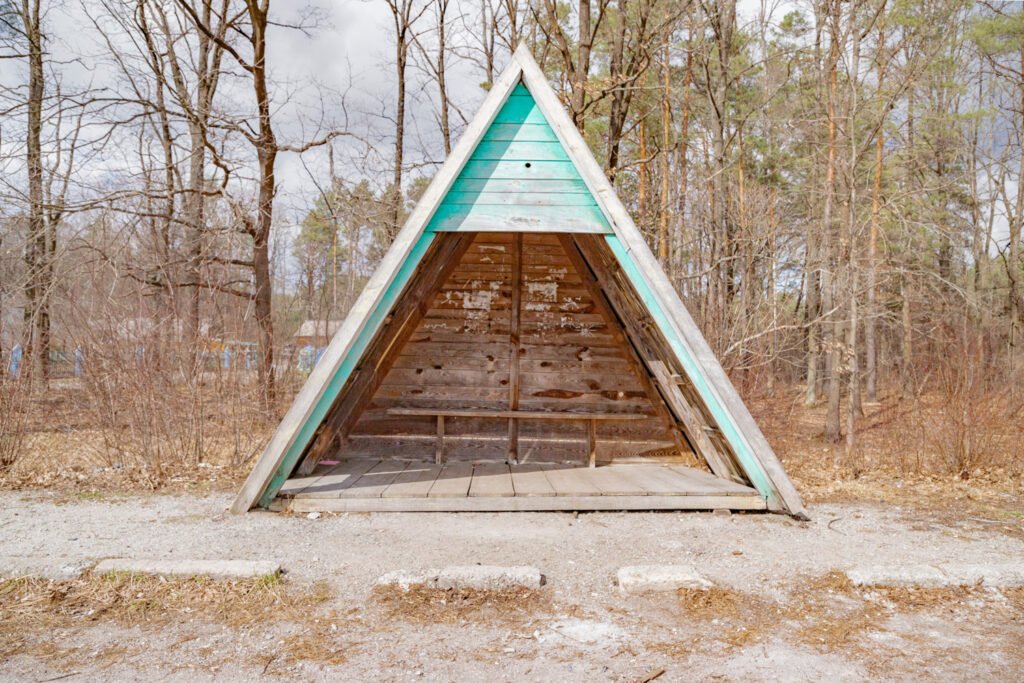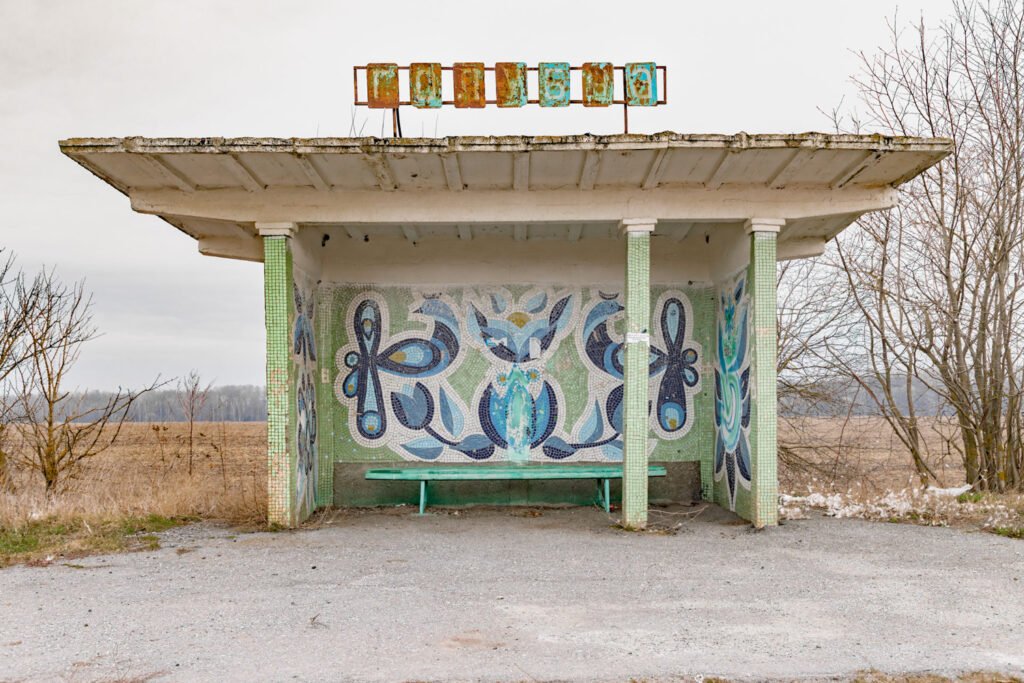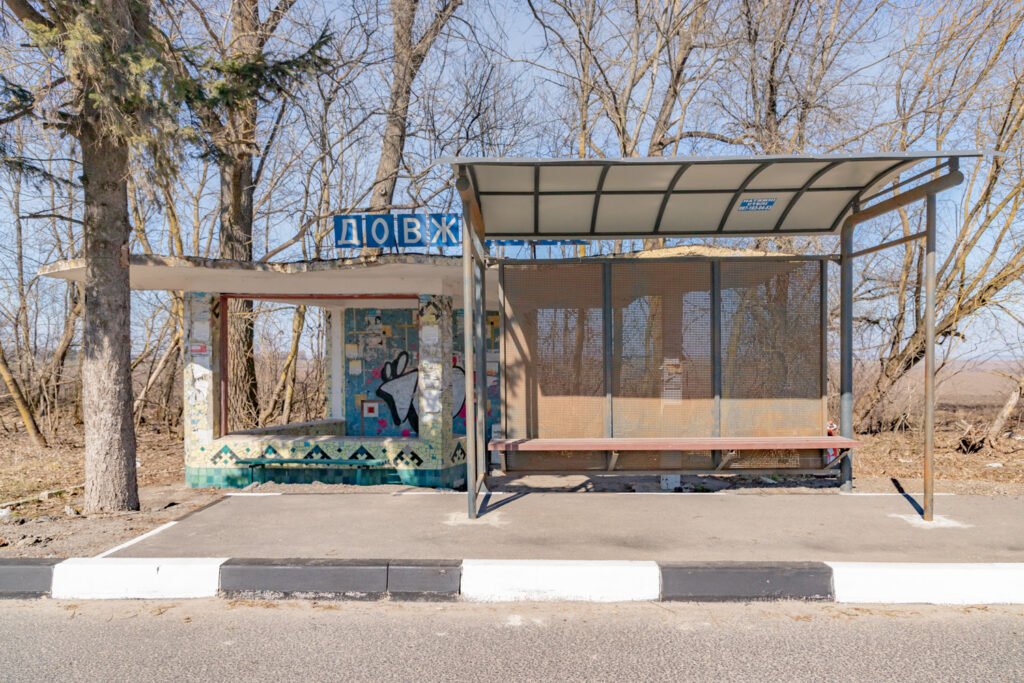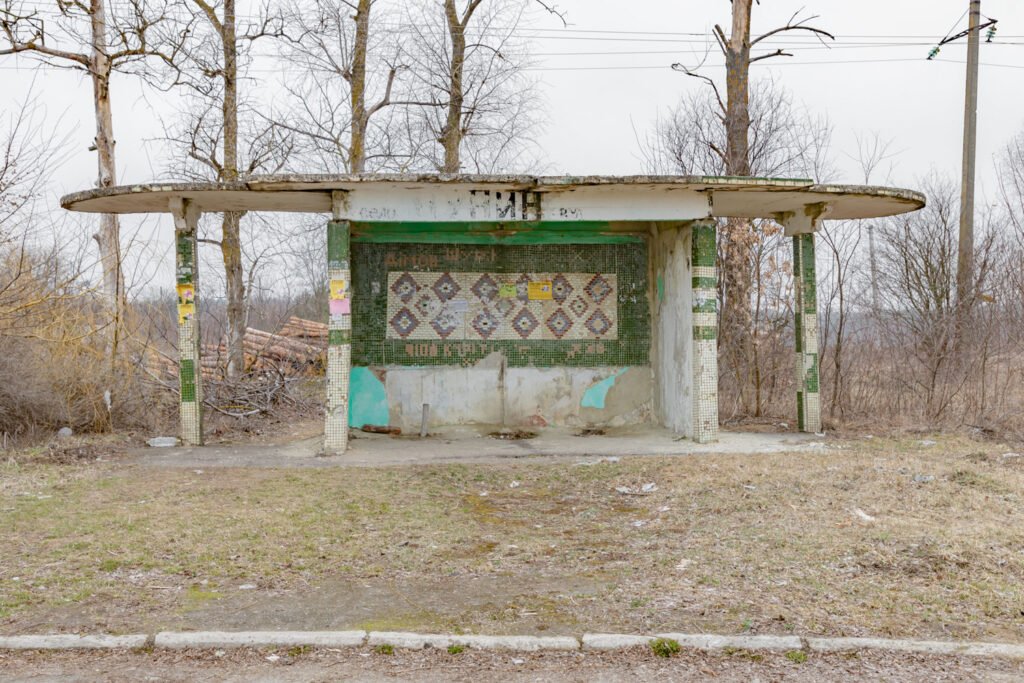This work is a research of the bus stop in Ukraine not only as an architectural object within its direct utilitarian function as a waiting place for public transport in a particular place, but also its communicative function.
Bus stops (bus shelters) as small architectural forms belong to the objects of public space. Public space, in this case, I consider as a basis for the presentation of certain messages. The walls of bus stops thus act as a kind of platform for communication between strangers. In addition, messages on the walls often have features of folklore (anonymity, collectivity, variability, should be easily remembered to be reproduced in the future, etc., for example, inscriptions such as “Mary loves Peter”).
Messages on the walls can be classified as advertising, private messages of often intimate nature, political (e.g., statement of personal political position or attitude to a certain politician or party) and social, utilitarian, messages.
Special attention should be paid to the bus shelters built when Ukraine was a part of the USSR and their current state, at the time of photographing—in the context of socio-cultural political conditions and transformations in Ukraine—and the new meanings that these stops received after Ukraine gained independence. After all, through the construction of bus stops in the occupied territories, the Soviet authorities marked and emphasized their presence in this settlement. Also, propaganda motifs were often depicted on the walls of these stops. After the Revolution of Dignity, by the act of desecration of the walls of the bus stop with such motives or their complete destruction, citizens showed their position on preserving the memory of the Soviet heritage in modern Ukraine.
The project was made during 2018-2019. Currently, the archive contains about 650 photos of various stops with details located in Lviv, Rivne, Ternopil, Zhytomyr, Kyiv, Poltava and Kharkiv regions.
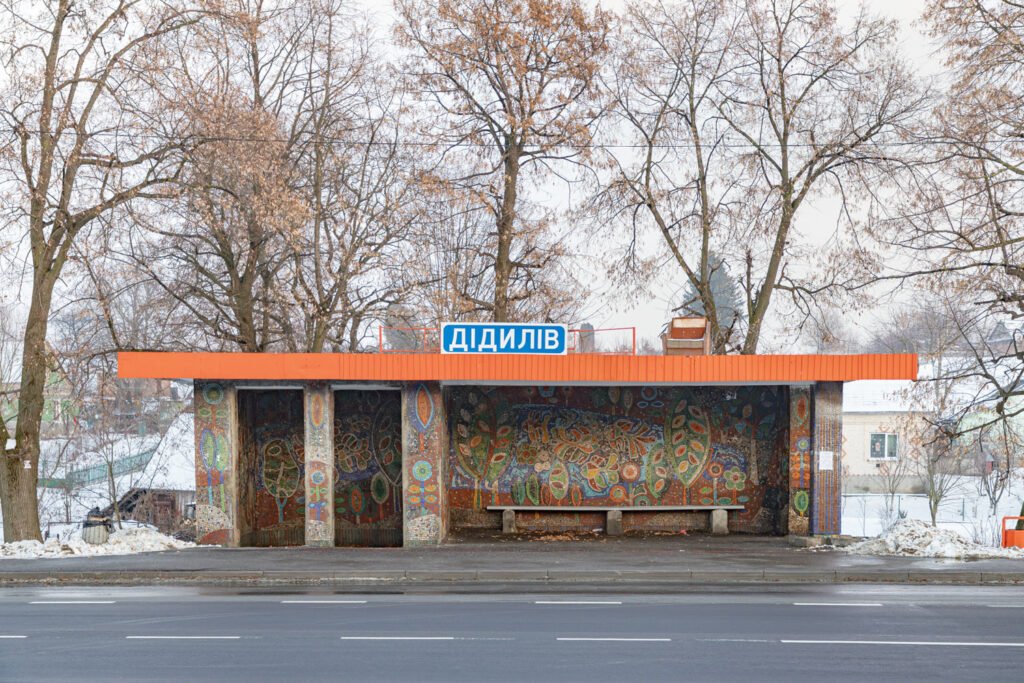
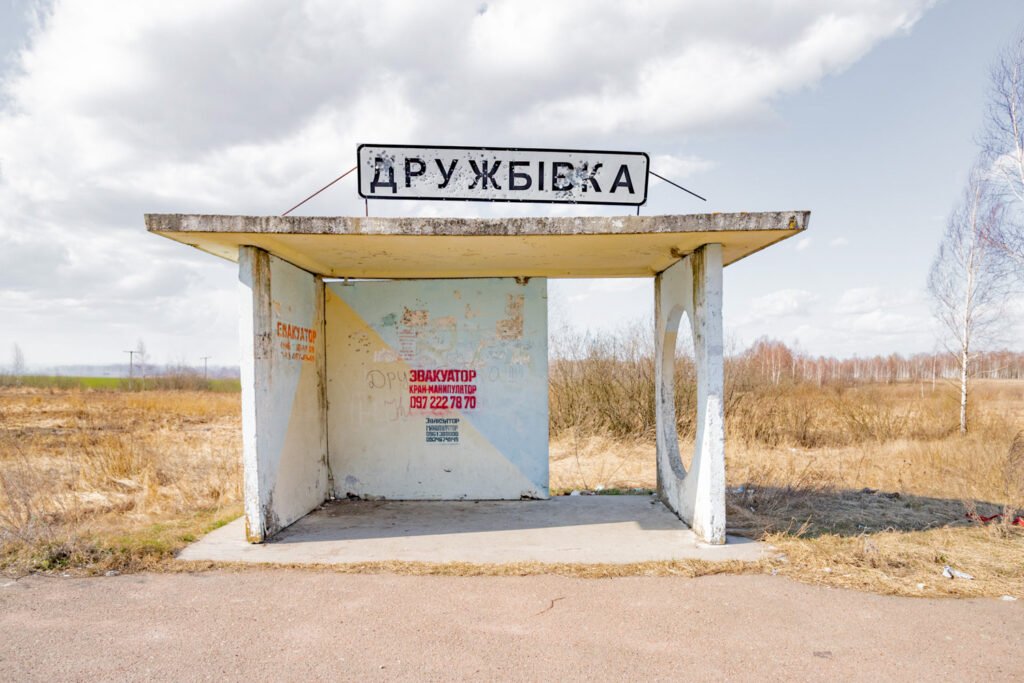
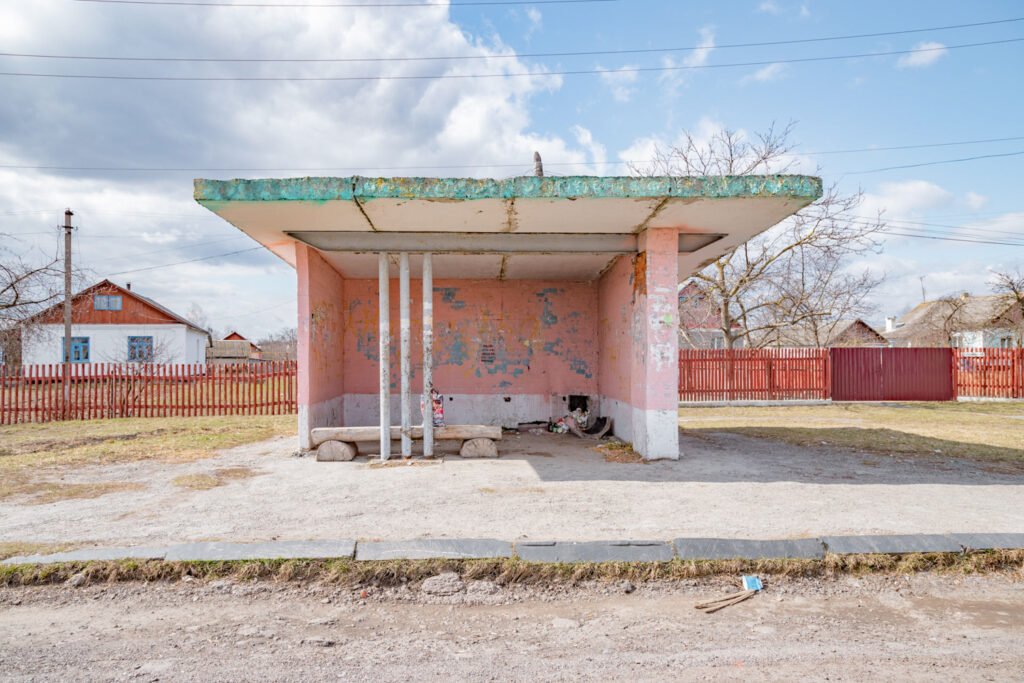
Oksana Meister (1988) is a Ukrainian photographer based in Berlin. She studied Photography at Lette Verein Berlin (2017-2020). Using an essayistic approach she explores such themes as displacement, identity of places, connection of a person to a place. Her works are silent, melancholic, and poetic, with a little bit of irony and humor.
